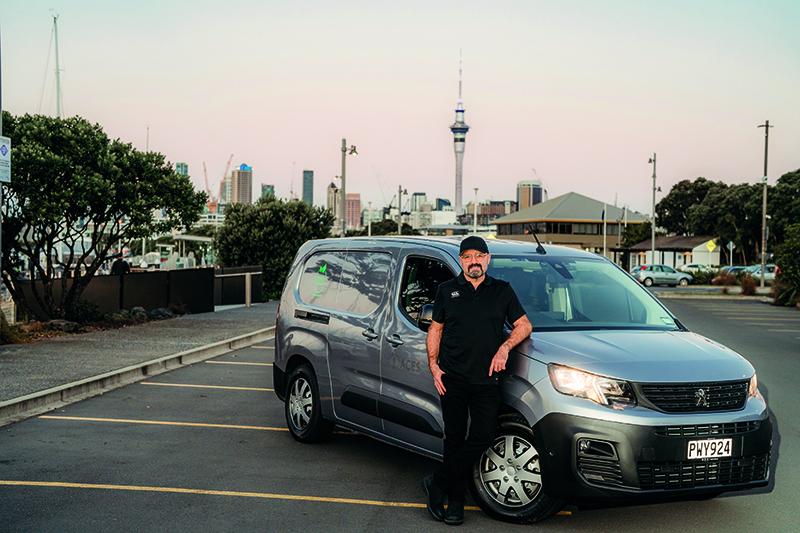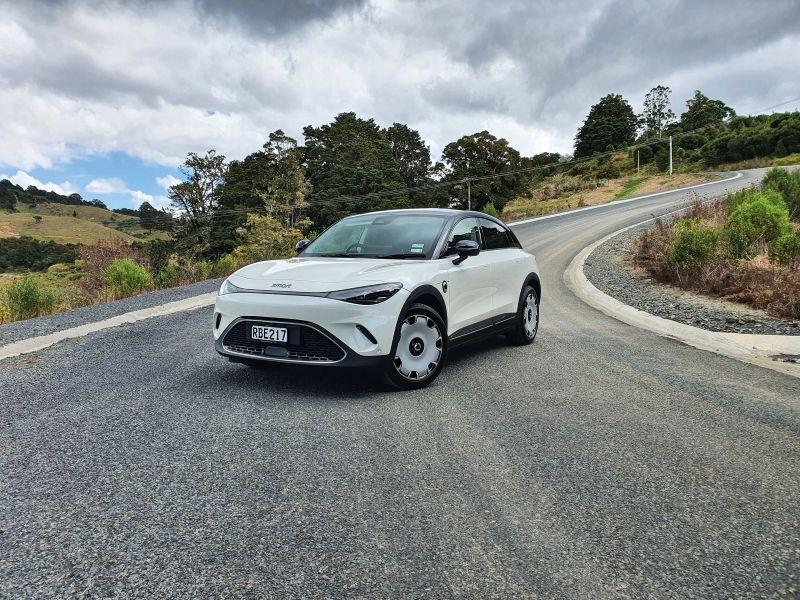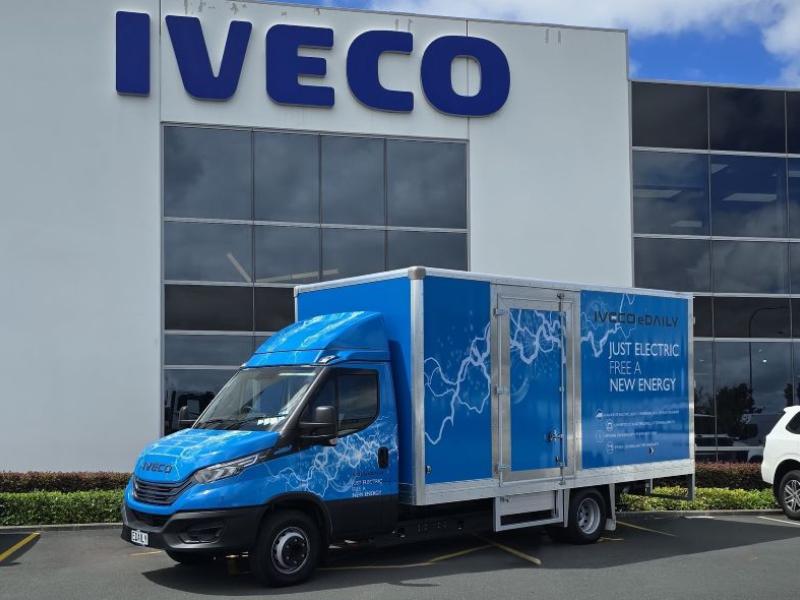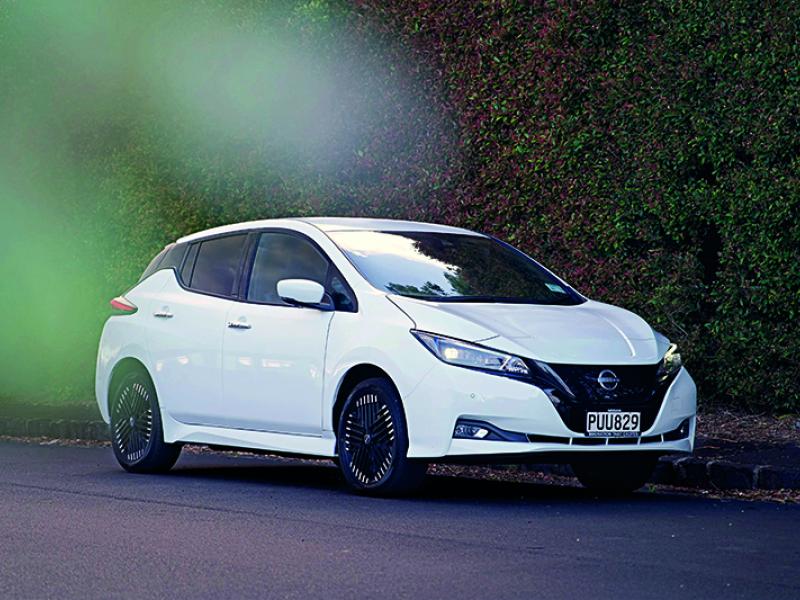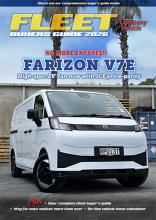It’s not NZ Company Vehicle magazine asking the question this time – we already know the answer – but Owen Stobart of ACES Pest Control in Auckland, who wants to share his experiences so that others might think about it.
Until recently I was driving my beloved Holden Commodore ute for work. Somewhat of an icon of a Ute, being the 2015 model – the year they stopped making them.
I joked with people that after years of refinement, Holden finally got the Commodore right and then stopped making it!
The main reason for changing from the Holden was it was too low to the ground and would constantly hit the front and back going into and out of appointments. Sometimes I’d get rid of the bugs but would leave the ute’s bumper behind, resulting in a costly insurance job.
While looking around for a suitable van, I found Peugeot had stock of the e-Partner electric van. The e-Partner is shorter and narrower than the Holden and most importantly, not as low to ground.
The first question I asked Trent the salesman was what was the range? About 300km was the reply. That was doable, and with that it was a done deal, I was going full-electric and emission-free. Bittersweet, as I also bid goodbye to my much-loved Holden.
I must admit that switching to an EV van was nerve-wracking initially, as I was unsure about the issue of range.
Surprisingly, some of my friends joined in the naysaying, telling me I was making a big mistake.
Add to this that I was somewhat emotionally attached to the Holden. I would miss the power of the six-cylinder Holden and how it drove (awesome).
However, I was resolute that buying the Peugeot e-Partner was the best thing to do for the business and the planet.
Almost three months on: how’s it been?
Well, it’s not what I expected. It’s much better. The range issue is not a big thing. Let me explain:
You start each day with a full charge (or tank of gas). So, most days I’ve finished work with more than 100km to spare. This is as long as I stay within the bounds of Auckland.
Should I get caught short, there are fast chargers around. Recently I tested one out. A 50kW/hr charger at a Z station.
I hooked up the van over lunchtime, and in the time it took to eat a chicken salad and read the news online, the van was charged up to 90 per cent.
Over a normal day for business, I never need to visit a charging station as I don’t do over 250km per day. So, range anxiety is not a real thing for my business around Auckland.
The e-Partner is also very quiet to drive. You hear other cars’ engines, not your own. Less white noise means you feel fresher at the end of the day.
Also, when customers call in on the hands-free phone system when driving it’s much easier to talk to each other. Of course, let’s not forget about the tunes on the radio sounding better too.
It’s fast too. Weirdly, faster than the Holden off the mark. The e-Partner has more torque and no gears. So, when hydrocarbon vehicles pause to change gear, you just race ahead.
The power is instant, there’s no waiting around; off you go! An eerie thing is that you can accelerate without any noise. The Holden would make a fair old racket when you put the power down. With the Peugeot EV, all you hear is the rushing wind.
The most impressive thing about an EV is the running costs. With the e-Partner so far, I am averaging $5 a day in electricity for a full day’s work around Auckland.
Remember, there are no servicing costs as there’s no engine under the bonnet. The daily cost compares to around $200+ weekly for fuel for the Holden (plus servicing costs).
This is where EVs have hybrids beat, there’s no engine to service under the bonnet. The daily running costs of EVs and their lack of servicing costs are their best-kept secrets.
Gas prices going up again? “Meh,” say the EV owners. We are no longer at the mercy of the oil barons!
I will mention a few drawbacks.
Firstly, there are some initial extra costs to EVs. If you charge off a normal wall plug it’s going to take days! So, a wall charger will speed this up to hours. I installed a wall charger, so it’s fully charged from zero in around six hours (overnight). The wall charger was 2K. Because my home was built in 1972, the fuse box needed to be replaced to handle the high volume of electricity safely. That’s another 2K.
Secondly, my van has frozen once. You know like Windows computers used to do on the regular. Except there are no “control alt delete” buttons to restart the van. While waiting for the tow truck it silently reset itself and I could turn it back on after about 90 minutes. Subsequently, the dealership did an update for the software, and it’s been running smoothly since.
Thirdly, there isn’t an established network of fast chargers like there are gas stations. However, gas stations are currently installing fast chargers nationwide on their sites.
Fast chargers are popping up everywhere. Having said that, at the moment, if you are going long distance you need to plan for a charging stop.
Fourthly, EVs mostly have a premium initial price. You recover this over the first 12-24 months of usage, but it’s still a bit salty up-front. As the sales volume increases the prices should come down.
There are a few circumstances where an EV is not suitable. These are:
1. Towing heavy loads. This will decrease their range significantly.
2. The vehicle is driven round the clock on shifts. EVs need downtime to charge.
3. You cover large distances every day, e.g., 300k or more.
My initial reason for switching to an EV was to reduce emissions for the business. However, it’s become somewhat of a revelation, it has opened my eyes to another way to power my vehicle.
And of course, the thing I like the most about EVs – and especially Peugeot’s EVs – is the SUPER low cost of running the transport. In hard economic times, that’s a BIG win for a business.
Final word
Maybe it’s time to take a second look at EVs like Peugeot’s e-Partner for your business. They make sense on many levels, and whether you like it or not, they are the future of transport.
To find out more about ACES Pest Control, visit www.commercialpestcontrol.net.nz.


